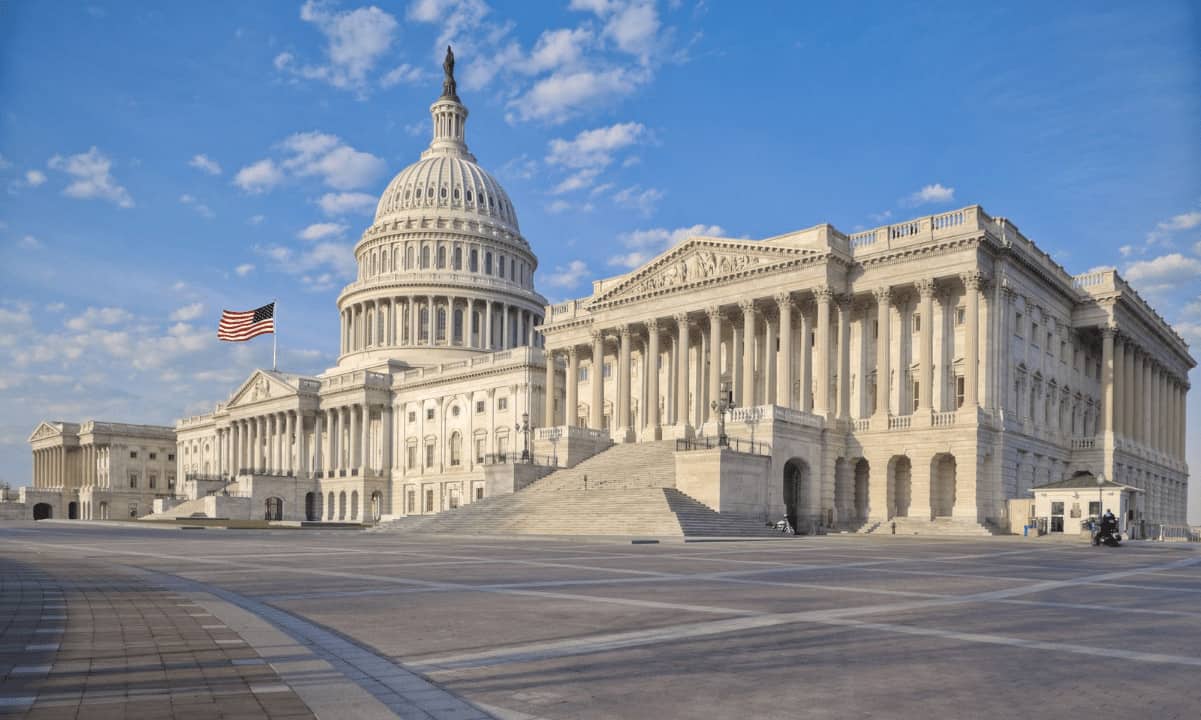
The House Financial Services Committee (HFSC) approved a slew of proposals related to digital asset regulation last month, of which any could be the first piece of crypto-specific legislation signed into U.S. federal law.
Here’s a summary of the differences between the most important bills, and what each could mean for crypto as a whole.
4 Crypto Bills: A Summary
One of the most high-profile bills to score approval was the Financial Innovation and Technology for the 21st Century Act (aka FIT 21), which received bipartisan support (all Republicans + 6 Democrats) from the HFSC last week.
The bill would clear confusion about what jurisdiction the Commodities and Futures Trading Commission (CFTC) has over digital assets, versus the Securities and Exchange Commission (SEC).
Though many Democrats considered the bill to be friendly to the industry, others believed it was a major step up from the status quo, and would help “create clarity where none exists.”
ADVERTISEMENT
The following day, the committee considered the Clarity for Payment Stablecoins Act of 2023, which would create clear rules around stablecoin issuance, and detail what authorities the Federal Reserve has over the sector.
Again, Democrats opposed the bill, referring to it as “deeply flawed,” and as being rushed by chairman Patrick McHenry. The White House and Treasury Department also expressed disapproval. Nevertheless, with Republican support plus that of 3 Democrats, the bill also received clearance.
The committee also passed the Blockchain Regulatory Certainty Act, which would guarantee that blockchain service providers that don’t keep custody of client assets are not treated as money services businesses under the law.
This would theoretically correct problems within President Biden’s 2021 Infrastructure bill, which would place untenable transaction reporting requirements on “digital asset broker” – a term that could include, miners, nodes, and validators.
Finally, Congress approved the Keep Your Coins Act of 2023, which would simply guarantee American citizens the right to take custody of their own crypto, and to use their assets to purchase goods and services as they see fit.
The Lummis-Gillibrand Bill
In the Senate, Cynthia Lummis and Kirsten Gillibrand have worked together to draft legislation with a similar purpose to FIT 21.
While drawing a clear line between digital securities and commodities, it would also empower the SEC to be more aggressive in pursuing consumer protections. New consumer protections would include requirements on crypto companies to prove their reserves and make companies clearly disclose their risks.
Unlike a version of the bill presented last year, the senators say their new version wouldn’t give the CFTC overbroad authority.
Binance Free $100 (Exclusive): Use this link to register and receive $100 free and 10% off fees on Binance Futures first month (terms).
PrimeXBT Special Offer: Use this link to register & enter CRYPTOPOTATO50 code to receive up to $7,000 on your deposits.
- SEO Powered Content & PR Distribution. Get Amplified Today.
- PlatoData.Network Vertical Generative Ai. Empower Yourself. Access Here.
- PlatoAiStream. Web3 Intelligence. Knowledge Amplified. Access Here.
- PlatoESG. Automotive / EVs, Carbon, CleanTech, Energy, Environment, Solar, Waste Management. Access Here.
- BlockOffsets. Modernizing Environmental Offset Ownership. Access Here.
- Source: https://cryptopotato.com/heres-every-crypto-bill-now-ready-for-us-congress/
- :has
- :not
- :where
- $UP
- 000
- 1
- 2021
- 2023
- 21st
- 7
- a
- About
- Act
- aggressive
- AI
- aka
- All
- also
- American
- and
- any
- approval
- approved
- ARE
- around
- AS
- asset
- Assets
- Authorities
- authority
- background
- banner
- BE
- being
- believed
- between
- Bill
- Bills
- binance
- Binance Futures
- blockchain
- border
- businesses
- by
- Century
- certainty
- CFTC
- chairman
- Citizens
- clarity
- clear
- clearly
- client
- code
- Coins
- color
- commission
- committee
- Commodities
- Companies
- confusion
- Congress
- considered
- consumer
- content
- correct
- could
- create
- crypto
- crypto bill
- crypto companies
- Custody
- cynthia lummis
- day
- Democrats
- Department
- deposits
- detail
- differences
- digital
- Digital Asset
- Digital Assets
- Digital Securities
- Disclose
- Dont
- draft
- drawing
- each
- empower
- end
- enjoy
- Enter
- Every
- exchange
- Exclusive
- exists
- expressed
- external
- Federal
- federal reserve
- Fees
- financial
- financial innovation
- financial services
- First
- fit
- flawed
- following
- For
- Free
- friendly
- from
- Futures
- Futures Trading
- Give
- goods
- guarantee
- Have
- help
- here
- high-profile
- House
- HTTPS
- important
- in
- include
- industry
- Infrastructure
- infrastructure bill
- Innovation
- internal
- into
- issuance
- IT
- jpg
- jurisdiction
- Keep
- kirsten gillibrand
- Last
- Last Year
- Law
- Legislation
- like
- Line
- major
- make
- many
- Margin
- mchenry
- mean
- might
- Miners
- money
- Month
- more
- most
- Nevertheless
- New
- nodes
- None
- now
- of
- off
- offer
- on
- opposed
- Others
- over
- own
- passed
- patrick
- payment
- piece
- Place
- plato
- Plato Data Intelligence
- PlatoData
- plus
- presented
- president
- problems
- Proposals
- Prove
- providers
- purchase
- purpose
- Reading
- ready
- receive
- received
- register
- Regulation
- regulatory
- related
- Reporting
- Republican
- Republicans
- Requirements
- Reserve
- reserves
- right
- risks
- rules
- s
- say
- score
- SEC
- sector
- Securities
- Securities and Exchange Commission
- see
- Senate
- SENATORS
- service
- service providers
- Services
- Share
- signed
- similar
- simply
- solid
- special
- Sponsored
- stablecoin
- Stablecoins
- Status
- Step
- SUMMARY
- support
- Take
- Technology
- term
- that
- The
- the Law
- their
- they
- this
- to
- together
- Trading
- transaction
- treasury
- Treasury Department
- u.s.
- under
- us
- us congress
- use
- validators
- version
- Versus
- was
- week
- What
- which
- white
- White House
- whole
- with
- within
- worked
- would
- year
- Your
- zephyrnet













